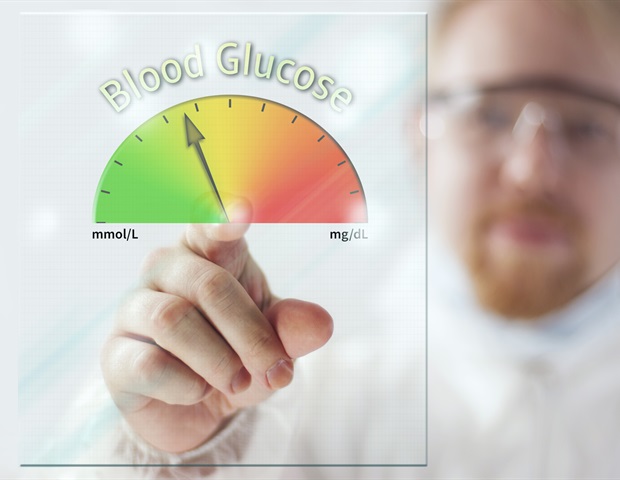A type of intermittent fasting reduces fluctuations in blood sugar levels
Early-time restricted feeding, a type of intermittent fasting, improved fluctuations in blood glucose levels and decreased time above range, according to research being presented Thursday at ENDO 2023, the Endocrine Society's annual meeting in Chicago, Ill.
Our research shows that just one week of following this diet strategy reduces fluctuations in blood sugar levels and reduces the time that the blood sugar is elevated above normal levels. This suggests early time-restricted feeding may be a helpful strategy for those with prediabetes or obesity to keep their blood sugars in a normal range and prevent them from progressing to type 2 diabetes."
Joanne Bruno, M.D., Ph.D., an endocrinology fellow at NYU Langone Health in New York, N.Y.
Early time-restricted feeding (eTRF) involves restricting calories to the first six to eight hours of the day. Previous studies have suggested that this form of intermittent fasting may improve cardiometabolic health and blood sugar levels. However, Bruno and colleagues wanted to determine whether these improvements are related to weight loss or the fasting strategy.
They developed a randomized seven-day isocaloric crossover supervised feeding study comparing eTRF (80% of calories consumed before 1 p.m.) to a usual feeding pattern (50% of calories consumed after 4 p.m.) among 10 participants with prediabetes and obesity.
The patients were randomized 1:1 to eTRF or usual feeding patterns for days 1-7 and were changed over to the alternate arm on days 8-14. Food was provided to meet the patients' caloric needs for weight maintenance to determine the weight-independent effects of this strategy. The researchers performed glucose tolerance tests at baseline, crossover (day 7), and at the end of the study (day 14).
The researchers discovered that the participants' weights were stable throughout the study. They found eTRF led to a decreased mean amplitude of glycemic excursion (MAGE) and decreased time above range, compared to the usual eating pattern group. The time in range was similar between the eTRF and the usual feeding pattern group.
"Eating the majority of one's calories earlier in the day reduces the time that the blood sugar is elevated, thereby improving metabolic health," Bruno said.
These findings suggest that eTRF has the potential to improve blood glucose levels, independent of weight. However, more studies are needed to understand the true benefit of these intervention strategies, the researchers said.
The Endocrine Society
Posted in: Medical Science News | Medical Research News | Medical Condition News
Tags: Blood, Blood Sugar, Bone, Bone Health, Cardiometabolic, Diabetes, Diet, Endocrine, Endocrinology, Fasting, Food, Glucose, Hormone, Infertility, Obesity, pH, Prediabetes, Research, students, Type 2 Diabetes, Weight Loss
Source: Read Full Article
